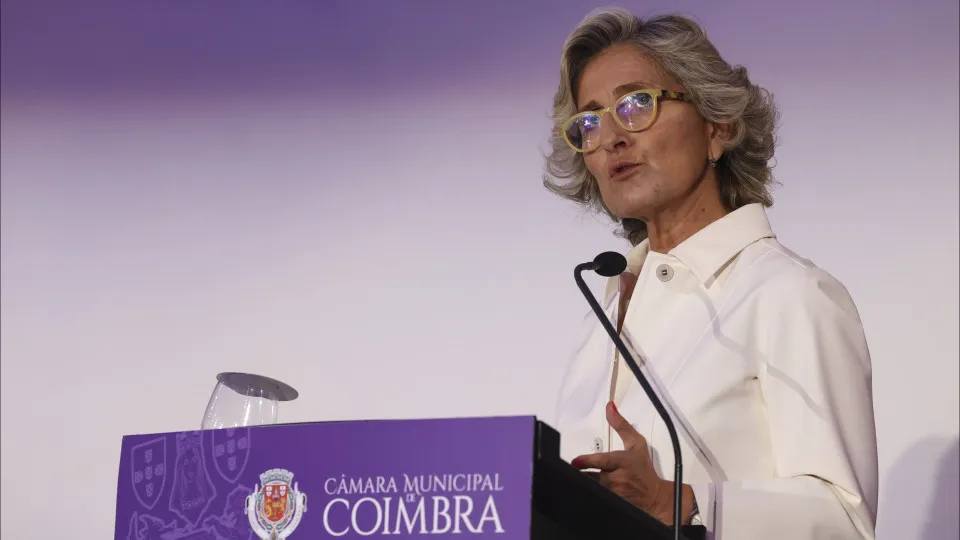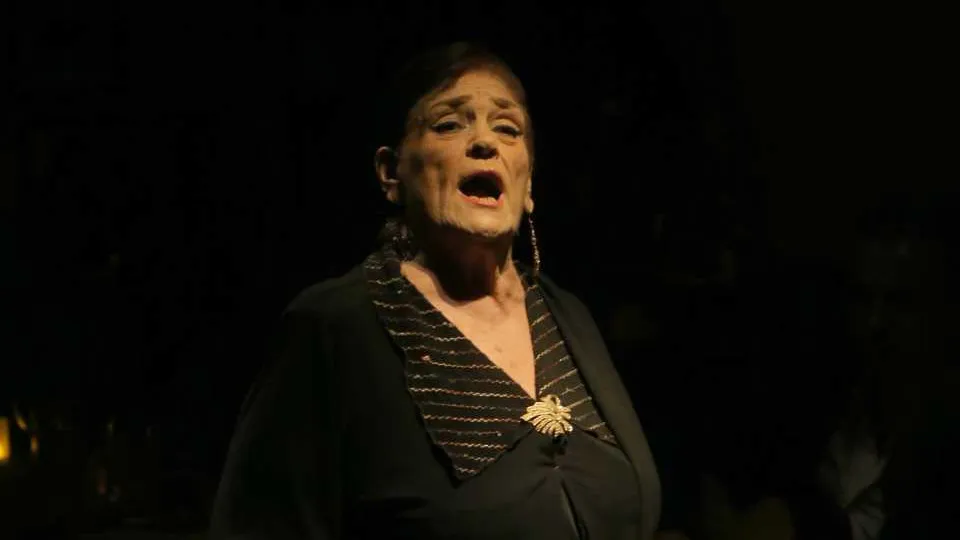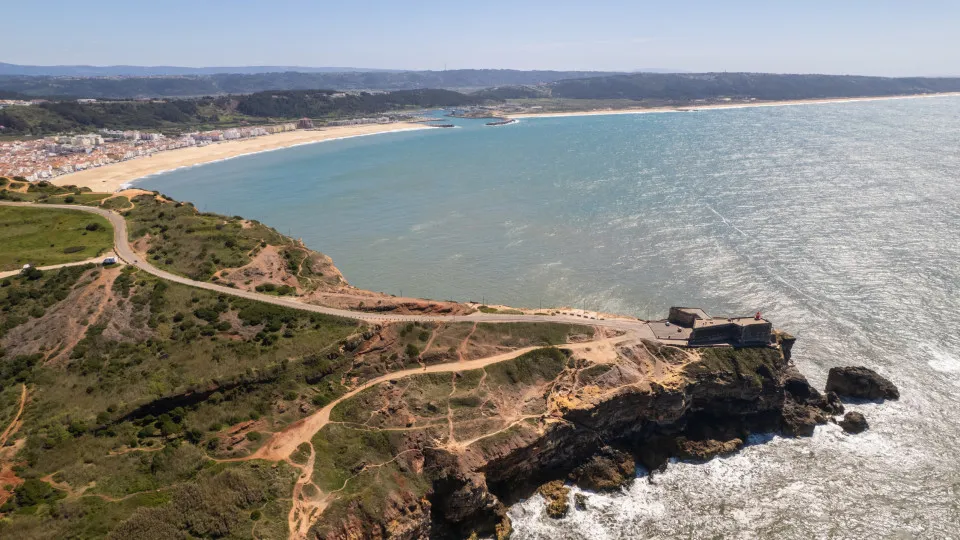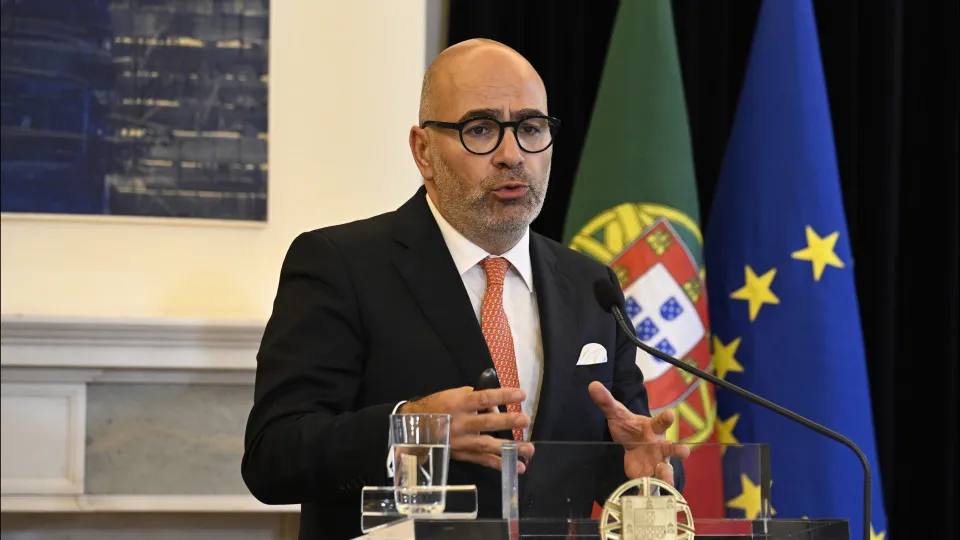
President Marcelo Rebelo de Sousa described the honoree as “one of the decisive directors of democratic Portugal,” urging him to remain in service for another decade, highlighting the ongoing need for ambition in today’s world.
The official ceremony, part of the ‘RP 80’ program, featured the restaging of Ricardo Pais’s iconic works ‘Turismo Infinito’ and ‘al mada nada.’ These productions, which Pais regards as a “pre-posthumous tribute,” bring him joy, representing the pinnacle of his creative endeavors.
Describing Pais as “an example of freedom,” sprinkled with “genius touches,” the head of state noted that “Ricardo Pais is here to stay,” humorously suggesting the tribute at 80 might be “a bit excessive.”
The Minister of Culture, Youth and Sports praised naming the main theater hall after Ricardo Pais as “a simple gesture, but deeply meaningful.”
Highlighting his “unique perspective” over more than five decades, she applauded the National Theatre São João for its decision, affirming that the theater “has not lost its identity” through this act.
Speaking to journalists at the ceremony’s conclusion, Ricardo Pais appreciated the President’s challenge but declined, affirming, “it’s not even a consideration.” He stated, “I have a lot to do, though it won’t be public work, there’s plenty to accomplish privately, right?”
Born in Leiria in 1945, Ricardo Pais is a pivotal figure among Portuguese directors post-April 25th Revolution.
Trained as a director at London’s Drama Centre, he returned to Portugal in the 1970s, becoming a key figure in the aesthetic and institutional revitalization of Portuguese theater.
His career spanning over fifty years includes staging works combining literature, music, and performance, crafting a theatrical language infused with formal rigor and poetic unrest.
He directed universal theatrical classics, including Molière’s ‘Don Juan’ (2006), created ‘Turismo Infinito’ (2007) based on Fernando Pessoa, and ‘al mada nada’ (2014), a theatrical dialogue with Almada Negreiros’s universe, all at TNSJ.
Among his acclaimed works are ‘Ninguém – Frei Luís de Sousa’ from Garrett, Frank Wedekind’s ‘Spring Awakening,’ ‘Fausto, Fernando, Fragmentos’ inspired by Pessoa, Thomas Bernhard’s ‘Minetti,’ Machiavelli’s ‘The Mandrake,’ Luísa Costa Gomes’s ‘Clamor’ based on Father António Vieira’s sermons, which left a lasting mark on his career and Portuguese theater.
His repertoire includes authors like William Shakespeare, Arthur Schnitzler, Federico García Lorca, Eugene O’Neill, Joe Orton, Alfred Jarry, and Rainer Werner Fassbinder. Remarkable productions include Gil Vicente’s ‘The Tragicomedy of Dom Duardos,’ Thomas Otway’s ‘The Venice Preserved,’ ‘The Lessons,’ merging works from Eugene Ionesco, Georges Feydeau, Ramalho Ortigão, Ernesto Sampaio, and Maria Velho da Costa’s ‘Madame.’
During the conception of ‘Teatro de enormidades apenas críveis à luz elétrica,’ he collaborated with Olga Roriz and in ‘Sondai-me, Sondheim – Musical insignificancia,’ staged at TNSJ in Porto and Teatro Nacional D. Maria II (TNDM) in Lisbon, he also revisited his acting role—previously explored in the films of Manoel de Oliveira (‘Amor de Perdição’), Luís Galvão Teles (‘A Confederação’), and António-Pedro Vasconcelos (‘O Lugar do Morto’), and recreating the character of deposed government leader Marcello Caetano in Maria de Medeiros’s ‘Capitães de Abril.’
Ricardo Pais led the TNSJ twice, after a stint as director at TNDM (1989-1990): initially between 1996-2000, then from 2002 to 2009, during which he developed the structure and ideology that reinvented the national theater model.
Under his leadership, TNSJ promoted a repertoire of Portuguese and foreign authors, modernized its structure, and enhanced the role of public theater in Porto’s cultural life.




